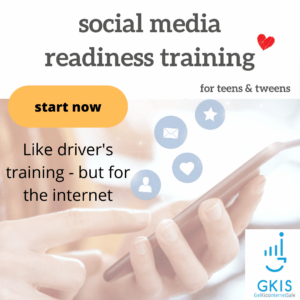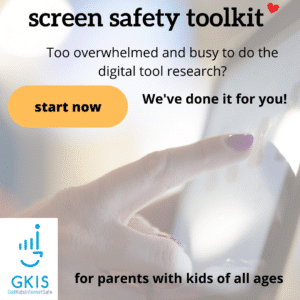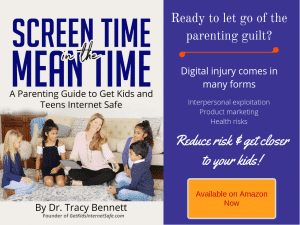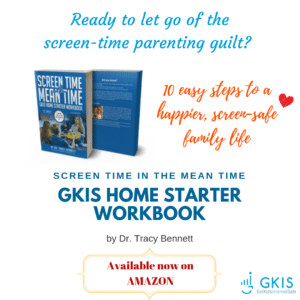
Parents often sneak onto their teen’s phone and see something explicit, upsetting, or dangerous. Then they’re in the hard spot of telling their teen they were spying without permission and intervening appropriately. I believe screen monitoring is necessary with young, impulsive teens, but I also believe parents should tell their kids they are monitoring and filtering. It provides practice for thinking before posting, demonstrates that other parents and adults are also viewing, and reveals a willingness to work together about online choices. Security and parenting experts have disagreed with me, saying that if a parent reveals intent they will miss out on secret plans and sneaky behaviors. The controversy is real.
A GKIS subscriber asked what do when she saw inappropriate content on her teen’s phone after secretly monitoring. Here’s my response:
Parent honesty is important, because we lose credibility if we punish for sneaking and lying while we are sneaking and lying. The trust was breached when you saw that content without discussing the rules ahead of time. If not handled delicately, this could damage your relationship. For that reason, I suggest you put your ego at the door and get out a knife and fork, because you are going to have to eat crow and apologize. Where is it written that parents can’t make mistakes? Let’s face it. We are new at parenting teens just as kids are new at being teens. This adds up to a rocky road of successes, failures, stops, and starts.
First, schedule a time to have a private discussion with your teen when you will not be interrupted. Tell him the truth. Admit that you were concerned, and you screwed up. In hindsight you realized you should have had more safety parameters in place before you got to this point, and you should have told him that his screen use would be monitored. Express your concerns while validating that his loving and sexual feelings towards his girlfriend are normal and natural (assuming there were no safety or legal violations here). Explain your philosophy about what you think is appropriate regarding intimacy and relationships at his age. Assure him that you will keep his confidence. Don’t go telling grandma and Aunt Linda about the intimate details you uncovered. Let him know that these are his facts to share if he chooses to, not yours.
Second, ask him what suggestions he has to resolve the very real conflict of privacy versus safety. Actively negotiate screen safety parameters. Some of my GKIS Staging Tips apply, such as no screens in bedrooms, bathrooms, or behind closed doors and GKIS blackout times to optimize judgment and supervision. Also, consider if monitoring and filtering programs and apps apply in this situation. Keep in mind it is best not to tell him which specific programs you will be implementing. If your son is a young teen, then monitor more closely. If he is older, you may just want to set a lighter monitoring option. Most importantly, let him know what you plan and why. And absolutely consider his input. By the time he’s an adult, he should be mostly on his own off-screen and on.
Finally, plan relationship-building opportunities with your son to repair the damage done. Perhaps this means getting to know his girlfriend better so they understand that he has a family to take into consideration when it comes to friendship and love. Of course, they deserve privacy, but you may choose to set stricter limits for now. Keep in mind that not every mistake requires traditional discipline, like taking screens away. The humiliation of you reading his texts and the face-to-face conversation about it is probably consequence enough. The truth is, his best resource for keeping intimate relationships healthy is the support and competition for his time from his friends. He needs his friends right now.
Cheers to you for reaching out for help. Teen-parent negotiations can be difficult. To learn more answers to parent questions, get my book Screen Time in the Mean Time: A Parenting Guide to Get Kids and Teens Internet Safe. If you like what you read, please leave an Amazon review. <3
I’m the mom psychologist who will help you GetYourKidsInternetSafe.
Onward to More Awesome Parenting,
Tracy S. Bennett, Ph.D.
Mom, Clinical Psychologist, CSUCI Adjunct Faculty
GetKidsInternetSafe.com
Photo Credits
Photo by Morgan Sessions on Unsplash
Don't worry, we will never spam you.










